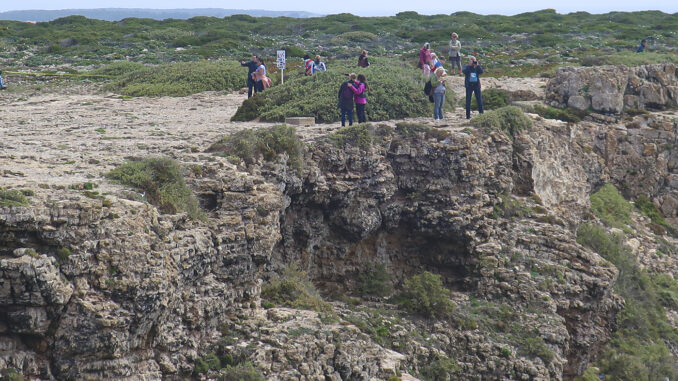
They won’t believe this selfie. Gotta lean back a little further and grin. A little more…whoa, that was close.
Tumbling off the edge of Portugal’s End of the World would mean cannonballing a couple of hundred feet into swirling water and crashing waves so impressive that some ancient mariners believed the sea was boiling here.
But many visitors tempt fate daily here at Portugal’s edge of oblivion and that’s not surprising, because it’s such an incredible Instagram moment. It’s part of a rapture that takes hold on the scenic drive through Portugal’s Western Algarve.
We’re on a shore expedition from Windstar Cruises’ Star Legend from Portimão a high-rise beach town that’s increasingly showing up on cruise itineraries. We were originally scheduled to sail on to visit Casablanca today, but Morocco’s ports had still not opened from a pandemic lockdown and so we were docked for a second day on Portugal’s Riviera and we were looking for an escape.
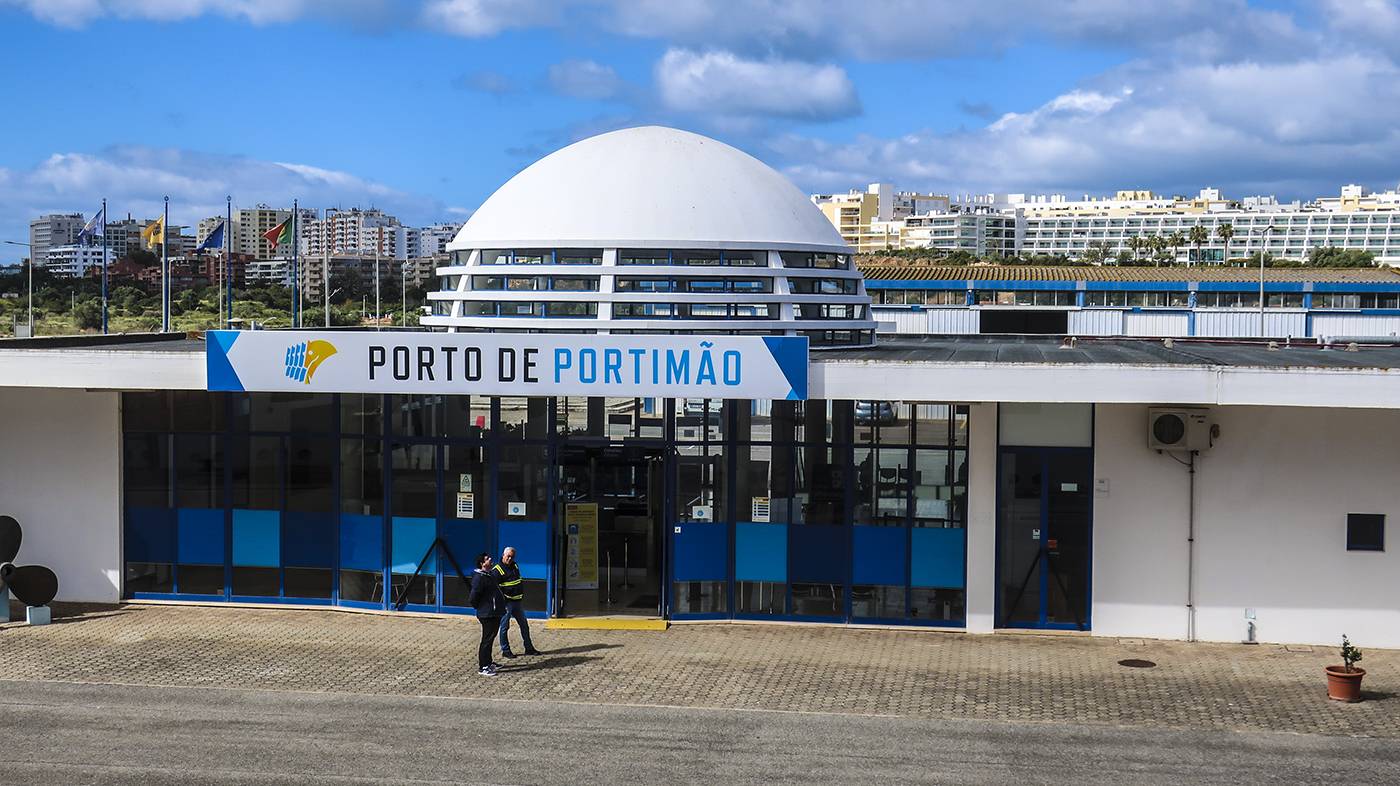
Portimão itself has become a beach town on steroids. So many people have bought time-share condos here that it’s difficult to even see the cliff-lined Praia da Rocha beach for the forest of bland, modern towers surrounding it. The traffic and crowds give a whole new meaning to the guidebooks’ description of this city as “bustling.”
Time for an escape, if there is one in the western Algarve that has become a summer tourist magnet . And Windstar has arranged a scenic drive for us to discover the coast’s attractions.
An hour’s drive on an inland highway brings us to the historic town of Lagos, which in modern times has also become largely devoted to tourism, but still maintains its colonial charm, with many buildings dating back to the seventeenth century. The city of cobblestoned streets lined with rows of colonial buildings has a much longer history, but much of its first buildings were wiped out by a massive earthquake that raised a devastating tsunami in 1755. Archeologists are still trying to piece together remaining sections of the city’s old walls that could resist cannonballs but couldn’t stand up to nature.
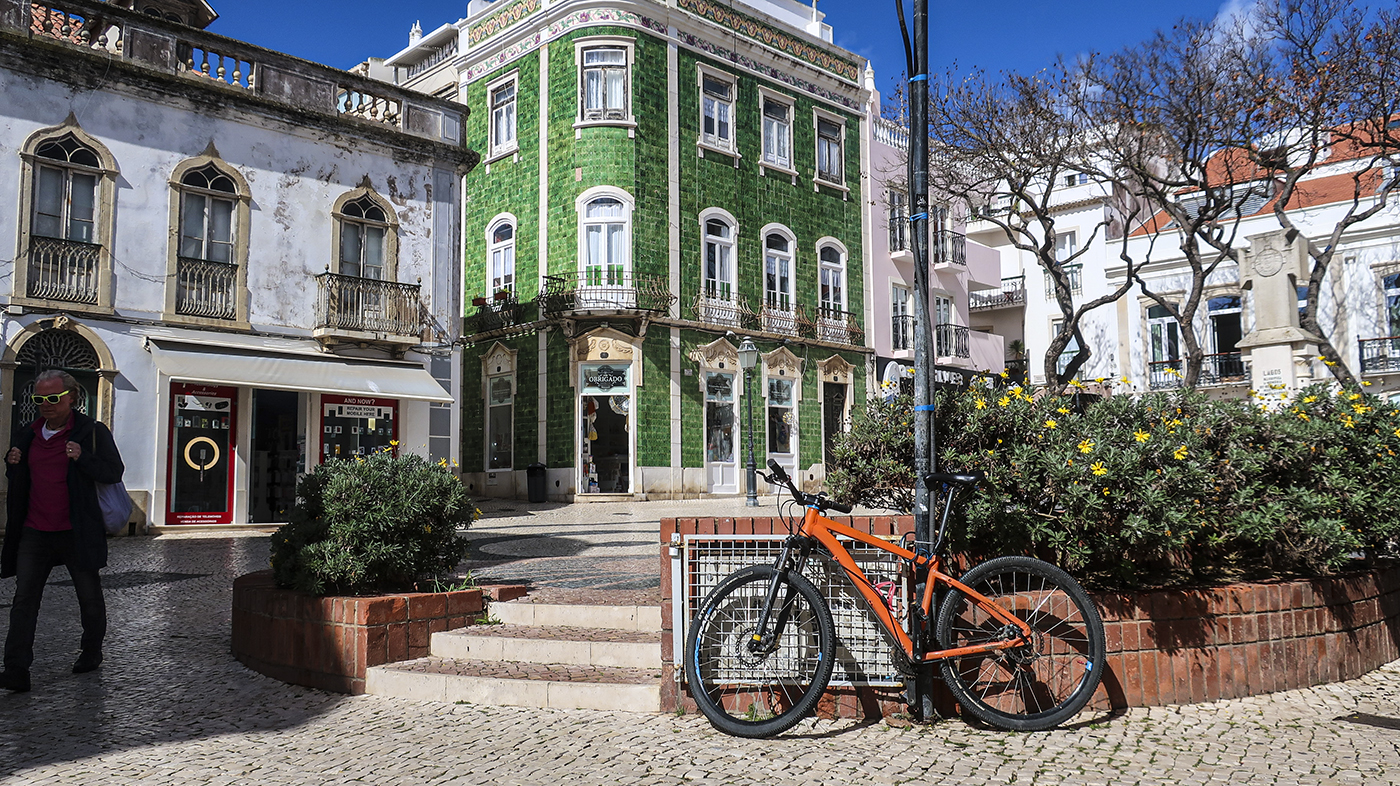
From 1576 to 1755, Lagos was the prosperous capital of the Algarve, Our guide paints a rosy picture of the glory days when this was the center of Portugal’s ambitious world exploration.
What they talk about: A first stop of the tour is a vast public square framed by the Church of Santa Maria, whose front wall actually dates back to the era of Christopher Columbus. A modern sculpture here honors Infante D. Enrique, who is often referred to as Henry the Navigator, although he himself was not a seafarer. Our guide tells us his claims to fame are development of a fleet of light and agile expedition ships known as caravels and support of voyages of discovery. As governor of the province of Algarve, Prince Henry backed Portugal’s exploration of the west coast of Africa—sailing from Lagos– technically in search of gold.
What they don’t talk about: This shoreside square was also known as the Mercado de Escravos, the slave market. It seems that having not found gold in Africa, a new lucrative trade in human cargo financed the expeditions from Lagos. This was the gateway for the first African slaves imported to Europe (Lagos became the namesake of what became the capital of Nigeria) and as the prime sponsor of these expeditions, Prince Henry is said to have received part the selling price of every slave.
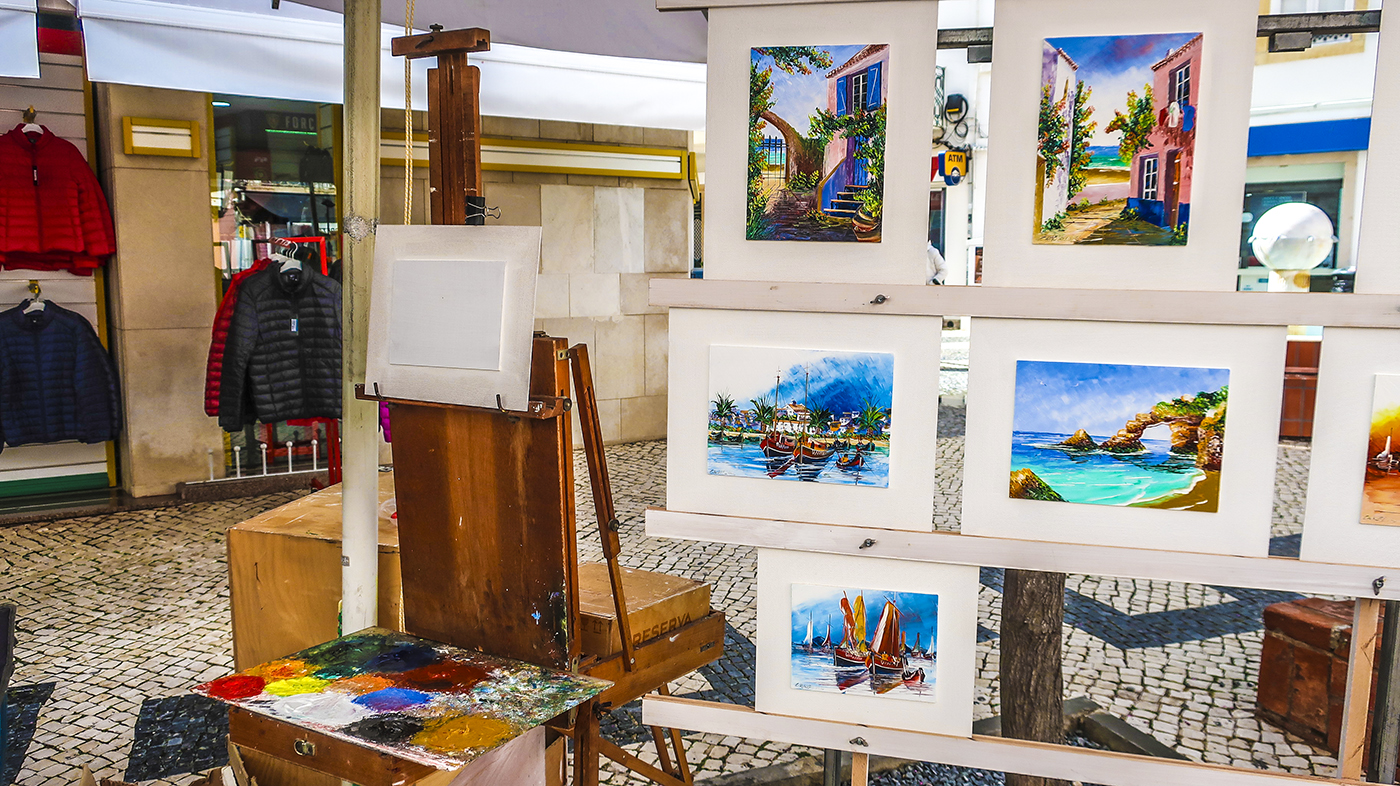
Lagos today is a resort town that has kept its character despite the tourist invasion. In free time wandering the cobblestone and marble covered streets, it becomes clear that most of the beautifully restored buildings in the old city have become hotels, cocktail bars, Irish pubs and pizza parlors that get lively from sunset onwards. On a daytime cruise excursion there’s no chance to sample the night life for which the city is most famous famed.
If we had signed up for an alternative beach tour of Lagos, the afternoon would have included sunning on one of the half dozen beaches lined with dramatic rock formations. that make this a tourist mecca in the summer months. Most popular is Meia Praia (Half Beach) which is one of the largest bays in Europe and popular for water sports.
Our group is staying dry and going further west -as far as you can go, to the Sagres peninsula–the most southern and western point of Portugal if you don’t count the Azores. It’s technically 30 minutes by car from Lagos to Sagres, but the 20 miles can take a lot longer in the busy summer tourist season. For a fishing village, it has a remarkable number of surf shops and sangria bars and even the only schnitzel stand on the Algarve. The beaches around the Cape of St. Vincent are for experts only, with waves that swell up to 15 feet.
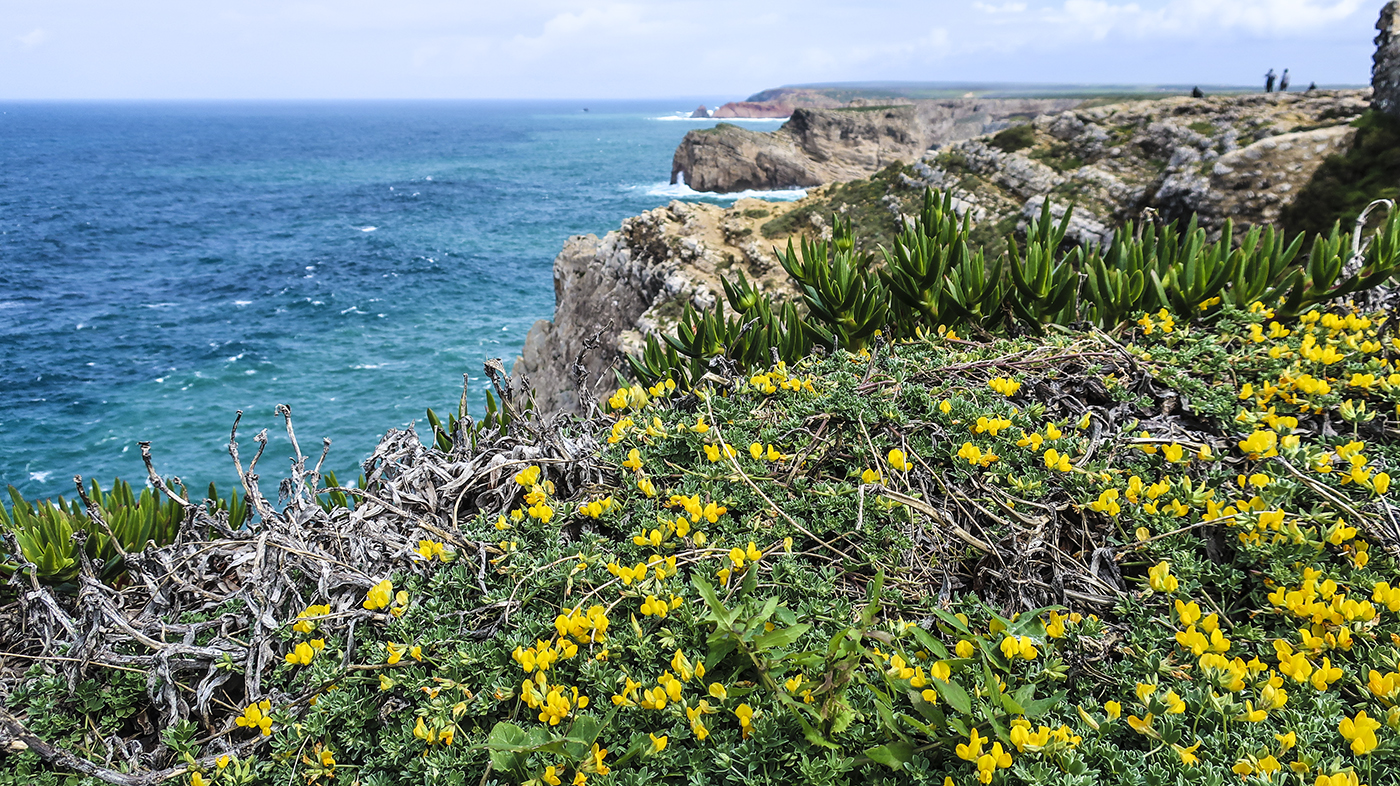
But we’ve come for the dramatic sea views from the point from lofty cliffs covered with wild flowers. And you really can see why this throngs gather every evening to watch the sun set into the seemingly endless sea. The cliffs also give a new meaning to rock garden and some intrepid souls even try to scramble along the wildflower-covered crags to try to get a closeup of the natural bouquets. A better bet is to bring a telephoto lens if you want to avoid the risk of coming home in a cast.
As we returned to Star Legend and set off from Portimão, many of us gathered on deck to watch the sunset sail away with a cocktail. Fortunately it’s not the end of the world; we’re headed to a new adventure–with no risk of going over the edge.
Story by Wallace Immen, The Cruisington Times

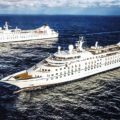
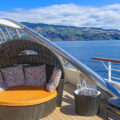
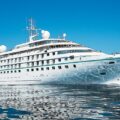

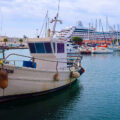
1 Trackback / Pingback
Comments are closed.